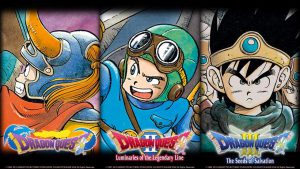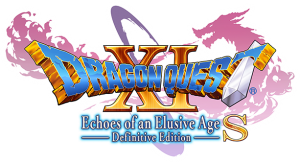As regards video game localization, Italy is a step ahead when it comes to characterization thanks to its numerous dialects. Sure: Japan and other nations too use them to define characters. For example, Kansai dialect is quite famous and it is seen as a funny and casual way to talk: that is why it is used in shows. Dragon Quest saga’s localizators used dialects expertly, giving life to thriving cities and interesting characters.

Dragon Quest and the Diversity of Its Inhabitants
Dragon Quest is a long series of Japanese role-play video games born in 1986. It has been designed by Yuji Horii and it saw a famous mangaka as its art director: Akira Toriyama, creator of Dr. Slump and Dragon Ball.
Dragon Quest’s Italian localizators often looked at Italy’s culture and dialects. Considering the more serious Final Fantasy, the abilities and the cities of this video game series were translated in very creative ways. For example, in the ninth chapter there are Difesa poderosa (Immense Defence), Riff Riff (Hot Lick), Malmessia‘s city (Dourbridge) and Malacava (The Bad Cave). Some NPCs are characterized by expressing themselves with dialects. Also in Dragon Quest IX, to reach the Realm of the Almighty the player will need the Starflight Express, which pilot is a Tuscan man. The Starflight Express, by the way, is a play on the “Starlight Express,” a musical about trains by Andrew Lloyd Webber.

In Dragon Quest XI a whole city by the sea expresses in a patchy Sicilian. Or, in the same chapter, there is the city of Gondolia, which resembles Venice and which inhabitants use Italian words in their sentences.
These localization peculiarities are very time consuming, like Yuu Miyake said to Game Informer. However, it is evident that this type of commitment helps the players to remember cities and the whole game experience.
A Divisive Technique
Opinions on this form of culturalization are conflicting: some people find them amusing while others believe that they are confusing. An example is the general idea around Drippy in Ni No Kuni: The Wrath of the White Witch. In the Italian release, Lucciconio (Drippy) encourages the young wizard Oliver with a Roman suburb slang that many found nasty and incomprehensible.
In conclusion, dialects are a widespread form of communication and video game should benefit from it. Many characters are remembered for their manners too and a skillful localizator should use dialects if needed to make these personalities stand out.





